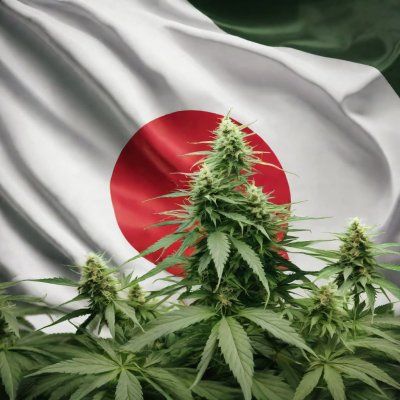On Tuesday, the Lower House of Japan passed a bill legalizing medical cannabis products while also strengthening the prohibition on other marijuana types. The bill, involving modifications to related laws, was then forwarded to the Upper House. If approved, the proposed changes could be implemented by the end of next year.
The new legislation could lead to the clinical use of Epidiolex, a product containing cannabidiol (an active compound found in cannabis). This product, already approved in the U.S. and Europe for treating severe epilepsy, is currently under clinical trial in Japan by GW Pharma.
The health ministry introduced the bill intending to close a loophole in the 1948 Cannabis Control Law. This law bans the possession, trade, and cultivation of cannabis plants and products but lacks a specific reference to their use. The proposed revisions will add cannabis as a banned substance under the Narcotics and Psychotropics Control Law, with violations leading to up to seven years in prison.
The bill received support from all parties except the Japanese Communist Party and Reiwa Shinsengumi during the Lower House's plenary session on Tuesday. Hirokazu Matsuno, the Chief Cabinet Secretary, expressed hope that the bill would enhance the quality of life for patients with severe epilepsy by providing access to cannabis-based medicines. Concurrently, the bill is expected to help curtail illicit cannabis use and prevent abuse.
The government maintains strong opposition to recreational marijuana use, considering it a gateway to other illegal drugs, despite divided opinions among medical experts. Given Japan's long-standing tradition of cannabis farming for fiber, the Cannabis Control Law omitted references to cannabis use to prevent hemp farmers from being criminally prosecuted if they accidentally inhaled cannabis during harvesting.
Despite this, the government has upheld a zero-tolerance policy, with law enforcement actively pursuing suspected users, as seen in recent arrests of two students from Nihon University's American Football team.
During a Lower House Health, Labor and Welfare committee session last Friday, some expert witnesses expressed concerns about the criminalization of cannabis use. They argued that this could disproportionately penalize young offenders, making their reintegration into society more difficult. Ultimately, the bill passed the committee with a majority vote, and a resolution was added calling for the establishment of a support system for offenders, providing drug abuse prevention education, rehabilitation, and job-hunting assistance.
The new legislation could lead to the clinical use of Epidiolex, a product containing cannabidiol (an active compound found in cannabis). This product, already approved in the U.S. and Europe for treating severe epilepsy, is currently under clinical trial in Japan by GW Pharma.
The health ministry introduced the bill intending to close a loophole in the 1948 Cannabis Control Law. This law bans the possession, trade, and cultivation of cannabis plants and products but lacks a specific reference to their use. The proposed revisions will add cannabis as a banned substance under the Narcotics and Psychotropics Control Law, with violations leading to up to seven years in prison.
The bill received support from all parties except the Japanese Communist Party and Reiwa Shinsengumi during the Lower House's plenary session on Tuesday. Hirokazu Matsuno, the Chief Cabinet Secretary, expressed hope that the bill would enhance the quality of life for patients with severe epilepsy by providing access to cannabis-based medicines. Concurrently, the bill is expected to help curtail illicit cannabis use and prevent abuse.
The government maintains strong opposition to recreational marijuana use, considering it a gateway to other illegal drugs, despite divided opinions among medical experts. Given Japan's long-standing tradition of cannabis farming for fiber, the Cannabis Control Law omitted references to cannabis use to prevent hemp farmers from being criminally prosecuted if they accidentally inhaled cannabis during harvesting.
Despite this, the government has upheld a zero-tolerance policy, with law enforcement actively pursuing suspected users, as seen in recent arrests of two students from Nihon University's American Football team.
During a Lower House Health, Labor and Welfare committee session last Friday, some expert witnesses expressed concerns about the criminalization of cannabis use. They argued that this could disproportionately penalize young offenders, making their reintegration into society more difficult. Ultimately, the bill passed the committee with a majority vote, and a resolution was added calling for the establishment of a support system for offenders, providing drug abuse prevention education, rehabilitation, and job-hunting assistance.




